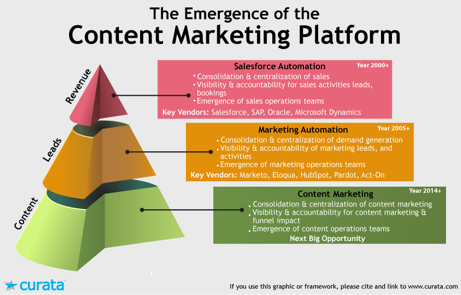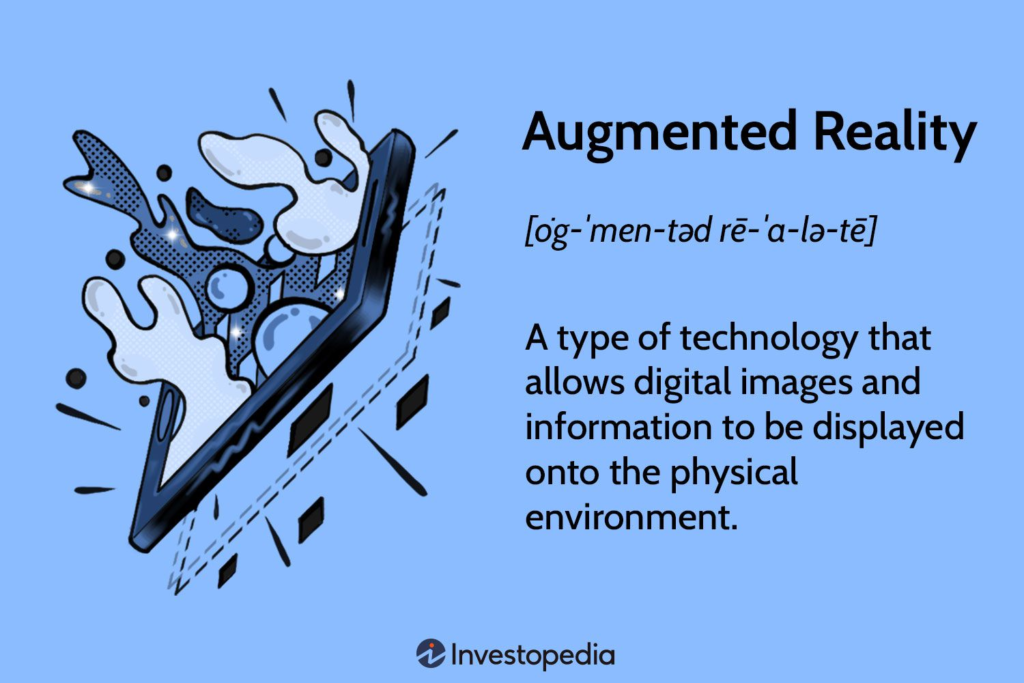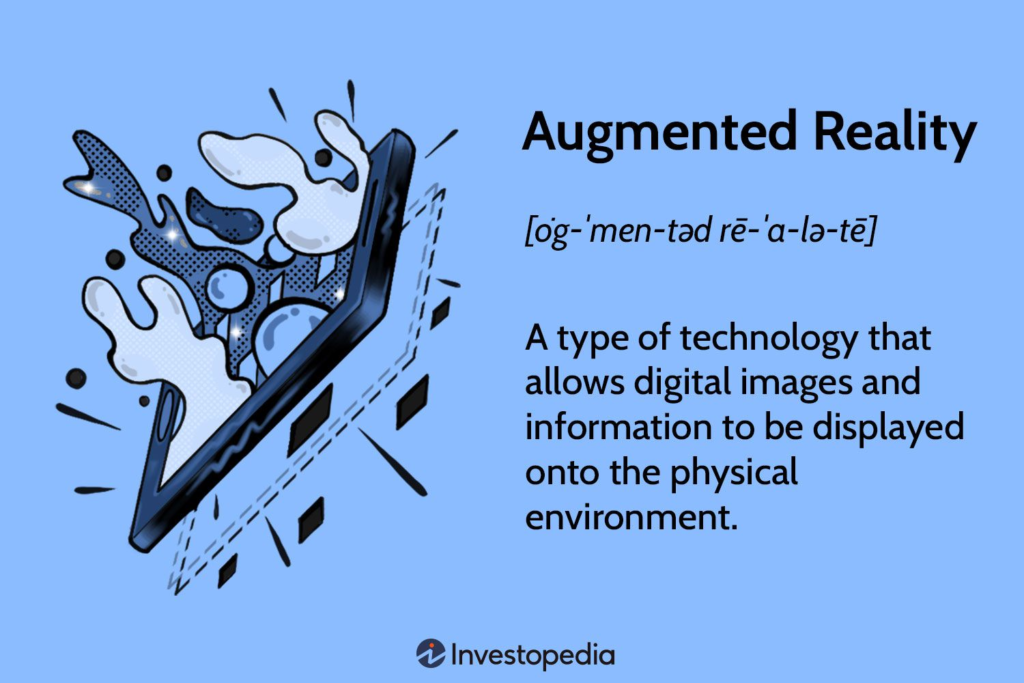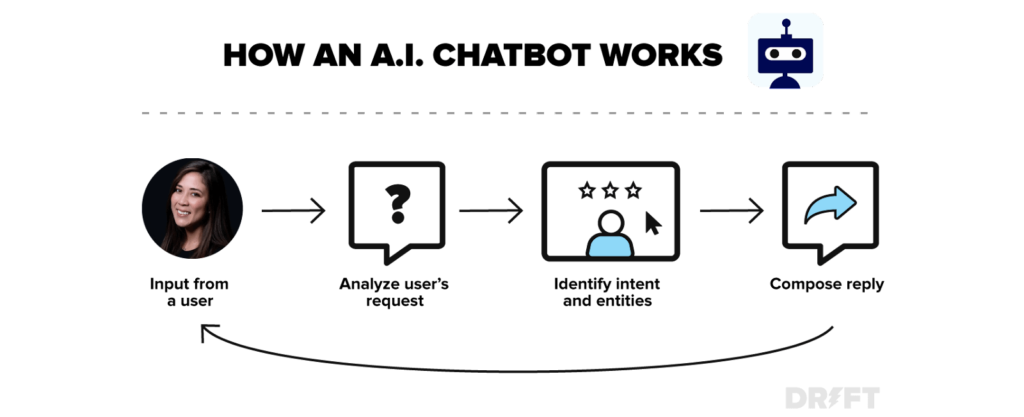The Future of Content Marketing Platforms: Top Trends and Predictions

As the world becomes increasingly digital, content marketing is one of the most important tools for businesses to connect with their target audience. However, the future of the content marketing landscape is constantly changing as technology and consumer behavior evolve.
In this blog post, we will explore the latest trends and predictions shaping the future of content marketing platforms. From the rise of artificial intelligence and machine learning to the growing importance of interactive and personalized content, we will cover insights and predictions on what to expect in the years to come. By understanding these trends, businesses can stay ahead of the curve and ensure that their content marketing strategies remain effective in a face-paced competitive market.
The Evolution of Content Marketing Platforms
Content marketing platforms have evolved significantly in the last decade, focusing on providing businesses with more advanced solutions for creating, distributing, and measuring the impact of their content. This evolution has been driven by the need to create more targeted and engaging content and the increasing importance of data analytics and personalization.
Today’s content marketing platforms offer advanced distribution methods, personalized content creation tools, advanced analytics and reporting, and integration with other marketing channels, making them an essential tool for businesses looking to succeed in the dynamic digital landscape.

Here are the top 8 trends that are determining the future of content marketing platforms:
Trend #1 The proliferation of AI-driven automation
With machine learning and artificial intelligence, marketers can automate tasks like data analysis, content creation, and social media management. This means that marketers can focus on more strategic initiatives while allowing technology to handle repetitive tasks. By analyzing user behavior and preferences, AI algorithms can deliver personalized recommendations for each customer, increasing engagement rates and driving conversions.
AI automation is also making a significant impact in content marketing with chatbots. Chatbots provide 24/7 customer support and can answer frequently asked questions without human intervention. They also offer real-time feedback that helps businesses improve their overall customer experience.
For example, Pepper CMP has an inbuilt AI technology – Peppertype.ai, which uses advanced machine learning to understand a brand and target audience and generate original content in over 25 languages. The platform’s AI engine has been trained with over 100K+ of content to understand what would work best for the audience, ensuring that engaging and persuasive content can be created.
Trend #2 The shift to subscription-based business models
Subscription-based models for content marketing platforms can provide a steady stream of revenue for content creators while offering a predictable source of content for consumers. One of the primary benefits of subscription-based models is the ability to create a loyal customer base. By providing valuable content regularly, businesses can build a community of subscribers who are interested in their niche, leading to increased engagement, social sharing, and brand advocacy.
The subscription-based models also can offer subscribers personalized content. By collecting data on customer preferences and behaviors, businesses can transform the future of content strategy to meet the specific needs of their audience, leading to higher engagement, increased conversions, and better retention rates.
Trend #3 The rise of augmented reality
Augmented reality provides an interactive experience for users to engage with products and services on a whole new level. AR technology can bridge online and offline experiences seamlessly and presents an exciting opportunity for content marketers looking to create truly immersive and engaging content experiences for their audiences.

Brands can use AR to create unique experiences to allow consumers to explore their products and services, personalize their messaging through targeted advertising campaigns based on consumer preferences, and analyze behavior patterns or location data, allowing brands to deliver highly tailored messages that resonate with individual customers. As this technology continues to evolve, we expect even greater adoption rates to curate the future of content marketing among businesses across all sectors moving forward.
Trend #4 The growth of visual content
As we move forward into 2023 and beyond, it is clear that visual marketing will remain a crucial part of shaping the future of content marketing strategies across industries. The growth of visual content has been driven by the rising popularity of social media platforms such as Instagram, Pinterest, and TikTok.

Brands now use eye-catching graphics, infographics, animations, short-form videos, and reels to grab the attention of their audiences. Visual content helps brands tell their stories effectively while making it easier for consumers to retain information about products or services. The trend toward mobile-first website design also contributes significantly to visual content growth. With more users accessing websites via smartphones and tablets rather than desktop computers, companies prioritize creating visually engaging designs that look good on any screen size.
Trend #5 The increase in personalization
Personalization has become a key trend in content marketing platforms and for good reason. Personalizing content allows businesses to create stronger connections with consumers and ultimately drive better results. In today’s digital age, where so much information is available to consumers, personalized content helps brands stand out. By analyzing consumer data such as browsing history or purchasing habits, companies can tailor their ads to specific individuals, making them more relevant and increasing the likelihood of conversions.
Personalization is also being used in content marketing platforms through customized communications. Instead of sending generic emails to all subscribers, businesses are now segmenting their lists and sending personalized messages on personal messaging platforms such as WhatsApp and Telegram based on factors such as location or past purchases. As technology advances and more data becomes available, the future of content marketing strategy will rely on more innovative ways of delivering tailored experiences to consumers.
Trend #6 The emergence of chatbots
The emergence of chatbots has been one of the most significant trends determining the future of content strategy. They have become increasingly popular due to their ability to provide quick and personalized responses at any time. Chatbots are transforming how businesses interact with customers by providing an instant response system for customer inquiries.

Chatbots also allow companies to streamline their customer support processes, reducing costs and improving efficiency. Moreover, chatbots can help businesses collect valuable customer preferences and behavior data. This information can be used to create more targeted marketing campaigns based on individual interests and needs. With advancements in machine learning and natural language processing technologies, we may see even more innovative uses for this AI-driven tool.
Trend #7 The rise of influencer marketing
Influencer marketing allows businesses to tap into niche markets that may be difficult to reach through traditional advertising. Companies can build trust with potential customers by partnering with influencers who align with their values and mission. Influencer marketing presents an exciting opportunity for brands willing to invest time and resources into building authentic partnerships. With the rise of micro-influencers, social media users with smaller but highly engaged followings can create a significant impact allowing even small businesses to benefit from this approach.
As long as companies remain transparent and prioritize authenticity above all else, there’s no limit to how far these collaborations can go to shape the future of content marketing.
Trend #8 The power of user-generated content
User-generated content (UGC) is becoming increasingly popular in content marketing platforms. It refers to any content created by users or customers, such as reviews, social media posts, and videos.
Companies can foster a sense of community around their products or services by asking customers to share their own stories or experiences related to the brand. User-generated content has proven itself as a powerful tool in shaping the future of content marketing platforms. As brands continue looking for ways to increase engagement and build relationships with their target audience online, this trend toward UGC will grow stronger over time.
Wrapping Up
In conclusion, the future of content marketing platforms looks bright and promising. The content market is ripe for innovation and growth with the increasing demand for personalized content, interactive experiences, and AI-driven solutions.
As technology evolves and consumer behavior shifts, content marketers must stay ahead by embracing new trends, experimenting with new formats, and leveraging data and analytics to drive better results. Whether you are a small business owner or a digital marketing agency, investing in the right content marketing platform will be critical to your success in the years to come.
FAQs
Some of the top trends in content marketing platforms for the future include the rise of subscription-based models, the use of artificial intelligence and machine learning in content creation and distribution, and the increased focus on video and interactive content.
Businesses can stay ahead of the curve in content marketing by embracing new technologies and trends, such as subscription-based models and artificial intelligence. It’s also important to regularly evaluate and adjust content strategies based on audience feedback and behavior.
The future of content marketing platforms will likely have a significant impact on businesses, as it will provide new opportunities for engaging with audiences and building brand loyalty. However, it will also require businesses to be adaptable and willing to embrace new technologies and trends to stay competitive in the market.
Latest Blogs
In this blog, explore the golden rules of using AI marketing tools so you can leverage the benefits to their maximum potential.
In this blog, you’ll learn how to avoid the pitfalls of SEO over-optimization while enhancing your site’s performance.
In this article, we’ll take a look at what AMP is, its advantages and disadvantages, and how it affects SEO.
Get your hands on the latest news!
Similar Posts

Product
6 mins read
Elevate Your Content Strategy: The Value Proposition of Content Marketplace Platforms

Product
5 mins read
Achieving Seamless Content Marketing Platform Integration With Marketing Tools

Product
6 mins read